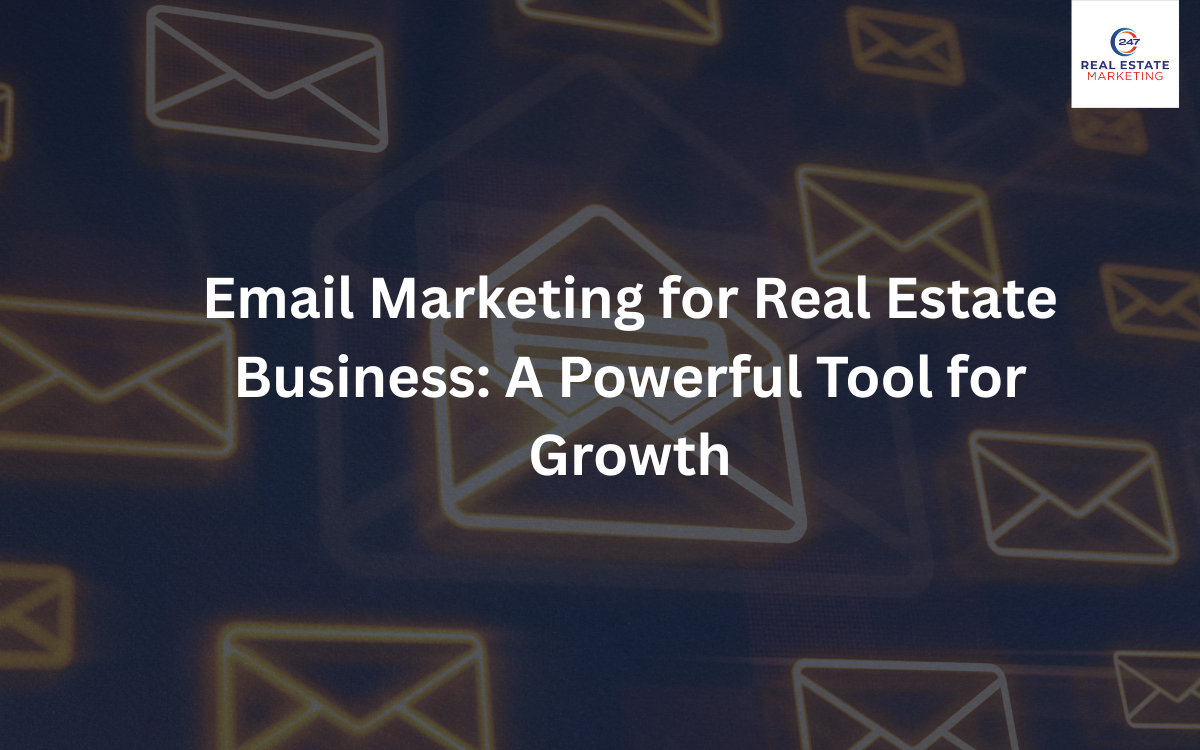
In today’s competitive real estate market, standing out and capturing the attention of potential buyers, sellers, and investors requires more than just an attractive property listing. With an ever-expanding digital landscape, email marketing has emerged as one of the most effective ways for real estate professionals to connect with their audience. It not only nurtures relationships but also drives conversions by delivering the right message at the right time. Whether you’re a real estate agent, broker, or agency owner, integrating email campaigns into your strategy can significantly elevate your business.
Why Email Marketing Matters in Real Estate
Unlike social media posts that can get lost in a crowded feed, email marketing allows you to land directly in a subscriber’s inbox a personal space where your message is more likely to be noticed. Real estate decisions often require trust and multiple touchpoints before a potential client takes action. Email offers the perfect platform to build that trust over time.
Through consistent and valuable email communication, agents can provide market updates, showcase new listings, share success stories, and educate their audience on buying or selling trends. This approach not only keeps your name top of mind but also positions you as an expert in the field. When a client is ready to make a move, your brand is the first they think of.
Building a Quality Email List
The success of your email marketing campaign depends on the quality of your email list. A strong list ensures that your efforts reach people who are genuinely interested in real estate opportunities. Start by adding sign-up forms to your website, blog, or landing pages. Offer a lead magnet such as a free market report, a home-buying checklist, or a neighborhood guide to encourage potential clients to subscribe.
You can also collect email addresses at open houses, property viewings, or community events. Always ensure you have permission to contact them to comply with privacy laws and maintain trust. A well-segmented email list will allow you to send more personalized content based on the interests and needs of your subscribers.
Crafting Engaging Email Content
The heart of any successful email campaign lies in the quality of its content. Instead of simply showcasing property listings, focus on providing value to your readers. Share tips on staging homes, explain mortgage trends, or offer advice on negotiating deals. When you give subscribers helpful information, they are more likely to stay engaged and view you as a reliable resource.
Here’s where content marketing seamlessly complements email strategies. By repurposing blog posts, videos, or neighborhood guides into email newsletters, you can deliver meaningful insights to your audience without always starting from scratch. A well-crafted email packed with valuable content keeps potential buyers and sellers informed while reinforcing your credibility.
Personalization and Segmentation
No two clients are the same, and your email marketing efforts should reflect that. Personalization goes beyond addressing a recipient by name. It involves tailoring messages based on their preferences, location, and stage in the buying or selling process. For example, a first-time homebuyer might appreciate tips on mortgage pre-approval, while an investor might be more interested in rental property statistics.
Segmentation allows you to divide your email list into groups based on specific criteria such as past inquiries, property interests, or engagement levels. By sending targeted emails to each segment, you increase the chances of higher open rates and conversions. Clients will appreciate emails that feel relevant to their unique needs.
Creating Compelling Subject Lines
Your subject line is the first thing recipients see, and it determines whether they open your email or scroll past it. A strong subject line should be concise, intriguing, and clear about the value inside. Instead of “New Listings This Week,” try “3 Stunning Homes Just Listed in Your Area.” The goal is to spark curiosity and communicate urgency without sounding overly sales-driven.
Avoid spammy language like “Free!!!” or “Limited Time Only” that might trigger spam filters or turn readers off. A/B testing different subject lines can help you discover what resonates most with your audience.
Timing and Frequency
When you send your emails is just as important as what you send. Sending too frequently can lead to unsubscribes, while infrequent emails may cause clients to forget about you. A good rule of thumb is to start with a bi-weekly or monthly schedule, adjusting based on your audience’s response.
Track metrics such as open rates and click-through rates to identify the best days and times for engagement. Many real estate professionals find that mid-week mornings tend to perform well, but testing is key to finding what works for your unique audience.
Automation for Efficiency
Email automation tools can save time and ensure consistent communication. For example, you can set up automated drip campaigns that nurture leads over time. A new subscriber might first receive a welcome email, followed by a series of emails introducing your services, sharing market insights, and showcasing available properties.
Automated emails also work well for follow-ups. If someone downloads a neighborhood guide from your website, you can automatically send them related content or invite them to an upcoming open house. This keeps prospects engaged without requiring manual effort for each contact.
Integrating with Broader Marketing Strategies
Email marketing doesn’t operate in isolation. It works best when integrated with other marketing efforts to create a cohesive brand experience. Your website, social media platforms, and offline events should all feed into your email list and campaigns.
This is where digital marketing comes into play. From pay-per-click ads that drive traffic to your landing pages, to social media campaigns that encourage newsletter sign-ups, combining email with broader digital strategies can amplify your reach and deliver better results. By aligning your email efforts with a comprehensive digital approach, you create multiple touchpoints that guide prospects through the real estate journey.
Showcasing Success Stories
Nothing builds trust like proof of success. Use your email campaigns to highlight client testimonials, before-and-after property transformations, or case studies of recent deals. These stories not only demonstrate your expertise but also create an emotional connection with potential clients.
Including photos, videos, or short interviews can make these success stories even more engaging. A reader who sees how you helped someone else find their dream home may be inspired to reach out for your assistance.
Tracking Performance and Making Improvements
To ensure your email marketing remains effective, it’s essential to track performance metrics. Key indicators include open rates, click-through rates, and conversion rates. Analyzing these metrics will reveal what type of content resonates most with your audience, which subject lines work best, and when your subscribers are most active.
Use these insights to refine future campaigns. For instance, if you notice that emails with market trend reports have higher engagement, consider making them a regular feature. Continuous improvement ensures your email marketing remains a strong driver of leads and sales.
Staying Compliant and Respectful
Real estate professionals must also prioritize compliance with email marketing regulations such as GDPR or CAN-SPAM. Always obtain consent before sending emails, provide clear unsubscribe options, and respect user preferences. A transparent and respectful approach not only avoids legal issues but also fosters trust with your audience.
Final Thoughts
Email marketing remains one of the most cost-effective and impactful tools for real estate businesses. By building a quality email list, delivering valuable content, and leveraging personalization, real estate agents can foster strong client relationships that translate into sales. When combined with broader marketing strategies, email campaigns can help you stand out in a crowded market and maintain long-term connections with buyers and sellers.
For real estate professionals willing to invest in thoughtful, strategic email campaigns, the rewards are undeniable: increased visibility, stronger client loyalty, and a steady flow of leads ready to make their next move.
Author
Mitesh patel
Mitesh Patel is the co-founder of 247 Digital Marketing, 247 Real Estate Marketing and a columnist. He helps companies like Emerson and other top Fortune 500 companies to grow their revenue.






